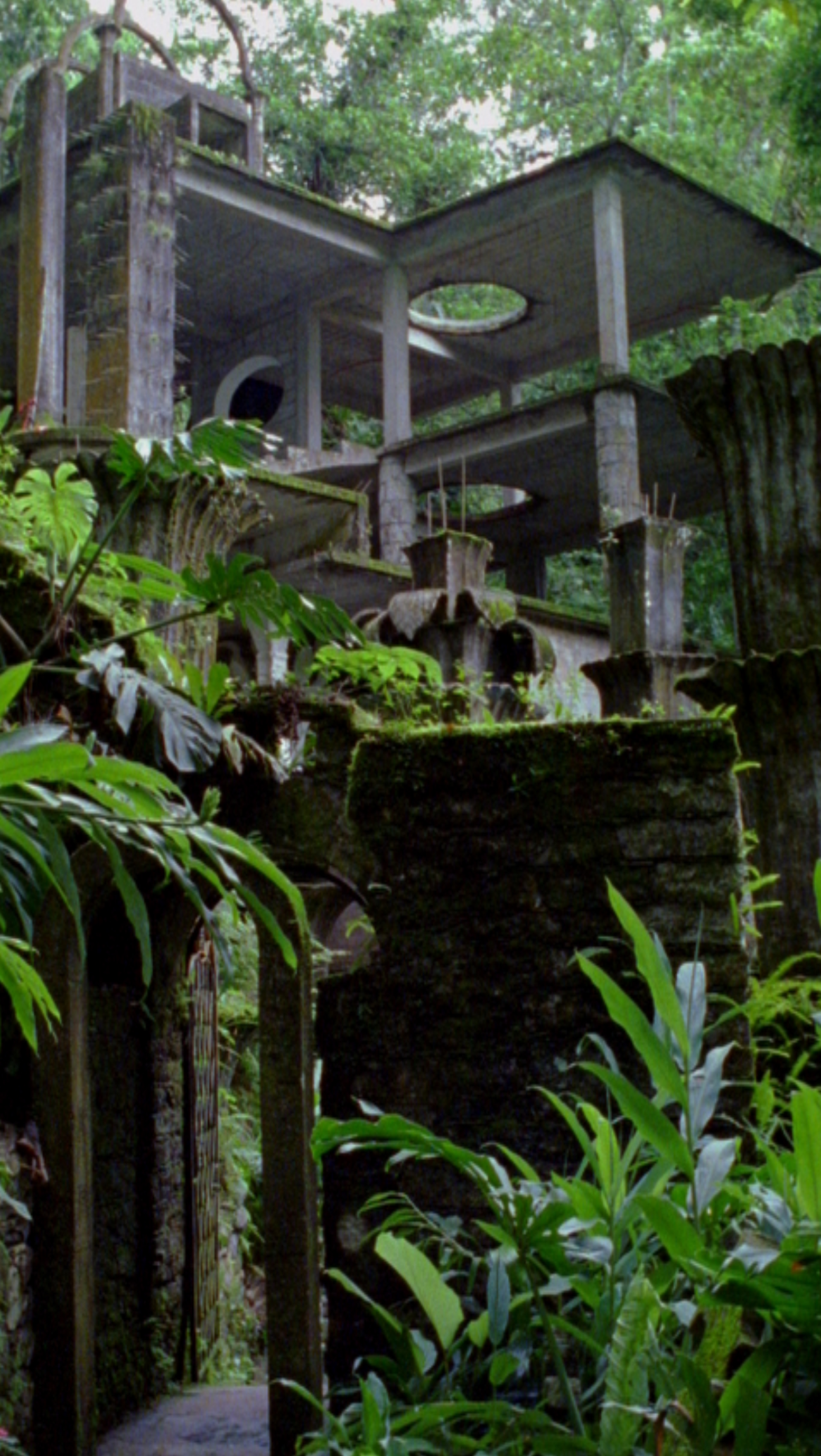Melanie Smith
Xilitla, 2010
Artist
Melanie Smith
Title
Xilitla
Year of creation
2010
Technology and duration
Single-channel video, 16:9 projection, sound, 24:40 min, loop
Year of acquisition
2017
Acquisition of the foundation
In collaboration with Rafael Ortega
For almost 30 years, British-born Melanie Smith (*1965, lives in Mexico City) has been dealing with the Latin American continent and the avant-garde movements of the 20th and 21st centuries in her cross-media art. Coming from painting, she explores the cultural, aesthetic and economic contradictions inherent in the metropolis of Mexico City in her formalist video works, photographs and installations.
In the film Xilitla (2010), which was made in collaboration with Rafael Ortega and was shown for the first time in the Mexican pavilion at the Venice Biennale in 2011, she follows in the footsteps of the Surrealist movement in Mexico in the 1940s. The setting for the high-format 35mm film is Las Pozas, a former plantation near the town of Xilitla, which Edward James (1907–1984), a wealthy Scottish collector and patron, transformed into a surrealist sculpture garden between 1964 and 1984. For James, this Garden of Eden in the middle of the jungle was a private, intimate place, fragile in its materiality and dysfunctional, with which he also referred to the love gardens of the 18th century.
Smith's 2010 film poetically evokes this place. Large mirrors are carried through the jungle. The mirror images are partly sharp, partly blurry, they frame the “landscape” and create a double camera image. Smith's deconstructive gaze transforms and divides the landscape into paintings. The images, which repeatedly focus on geometric shapes, are accompanied by the sounds of the jungle. Crossfades, light effects, a high proportion of blue and background music in several places create an eerie atmosphere. With reference to artists such as Dan Flavin, Robert Smithson and Gordon Matta-Clark, Xilitla takes the viewer into an exotic-surreal-constructed world, created partly by James and partly by nature.
(Ina Dinter)
